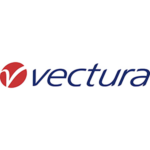 (Reuters) — James Ward-Lilley, the former AstraZeneca executive who created a UK respiratory medicine business in June by merging Vectura and SkyePharma, is already thinking about his next deal.
(Reuters) — James Ward-Lilley, the former AstraZeneca executive who created a UK respiratory medicine business in June by merging Vectura and SkyePharma, is already thinking about his next deal.
This time he’d like to buy a company with an established U.S. sales force to accelerate the group’s ambitions as it develops specialized lung drugs that are wholly owned by Vectura, rather than partnered with Big Pharma.
“I think it is the right thing to do, if we can find the right target at the right price,” the Vectura CEO told Reuters in an interview.
“It would make a lot of sense if we could find a company where we could avoid the opportunity costs of setting up a specialist sales team and bring in revenues earlier.”
Vectura hasn’t had an easy time since the SkyePharma deal closed, following a royalties row with GlaxoSmithKline, delays in Novartis launching its Ultibro inhaler in the United States and Flutiform, another inhaled medicine partnered with Mundipharma, failing in a clinical study.
Ward-Lilley acknowledged these setbacks were “frustrating” but said business fundamentals remained intact, as evidenced by the company raising its revenue outlook in September.
Much of the immediate focus for Vectura investors centers on hopes for a generic version of GSK’s best-selling Advair inhaler, which has been developed with Hikma. It could win U.S. approval in May.
Since global Advair sales were $5.6 billion in 2015, with half that generated in the United States, the opportunity is significant. Still, Ward-Lilley argues there is more to Vectura than a big play on generics.
Over the next three to five years he intends to deliver on new niche products that are fully owned by Vectura, starting with VR475, a nebulizer for severe asthmatics that could be filed for approval in 2019 and reach initial markets in 2020.
While Vectura might partner VR475 in Europe, it would like to sell it itself in the United States — hence the impetus to start looking for an acquisition that could add a sales force and complementary product lines.
“We could acquire it with cashflows that we have … we have the wherewithal to do that,” Ward-Lilley said. “For the last few months we’ve been very focused on implementing the merger but we’re always looking at assets.”
Recent currency volatility, following Britain’s decision to leave the European Union, has been marginally positive for Vectura’s sales and profits and has not derailed such long-term plans, he added.
“Clearly, M&A targets ex-UK look more expensive but, on the flipside, our revenues are slightly higher and we’re earning more from our euros and dollars.”
($1 = 0.8182 pounds)

